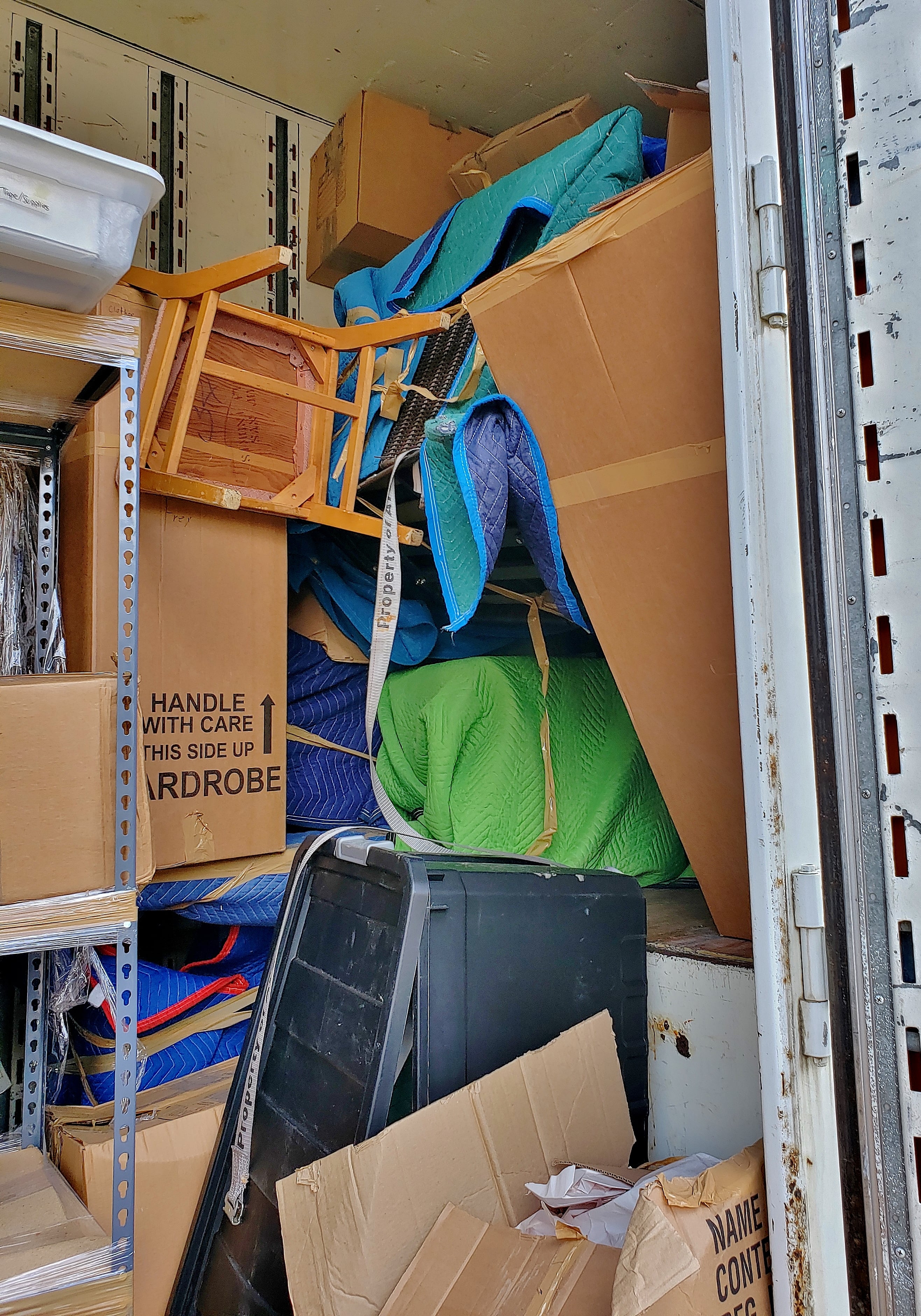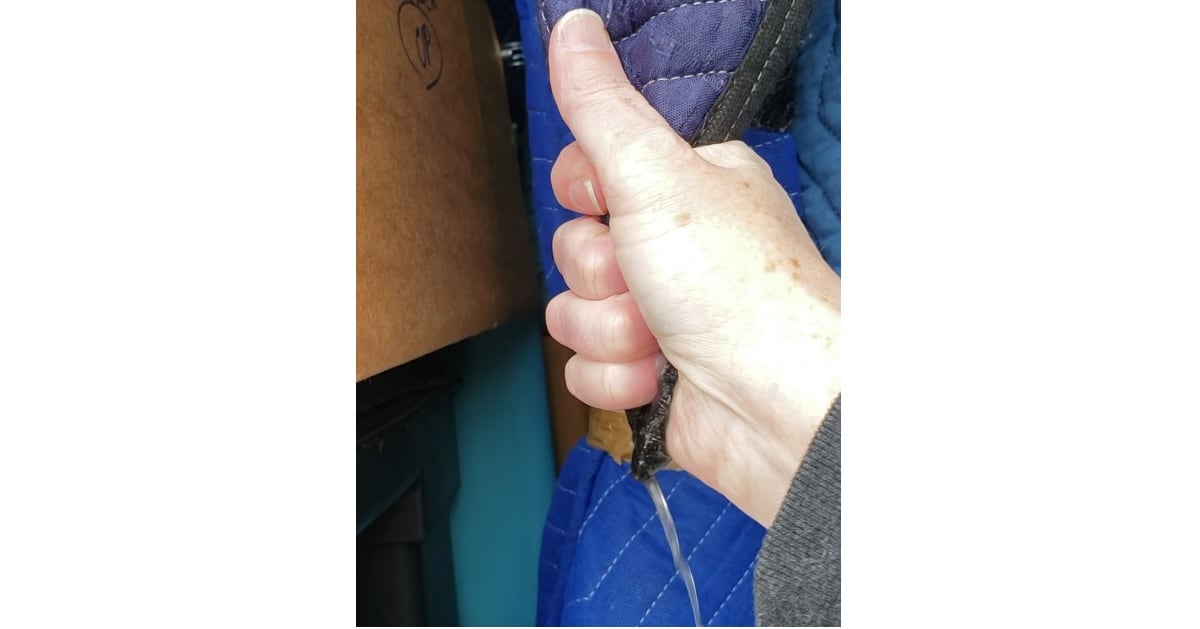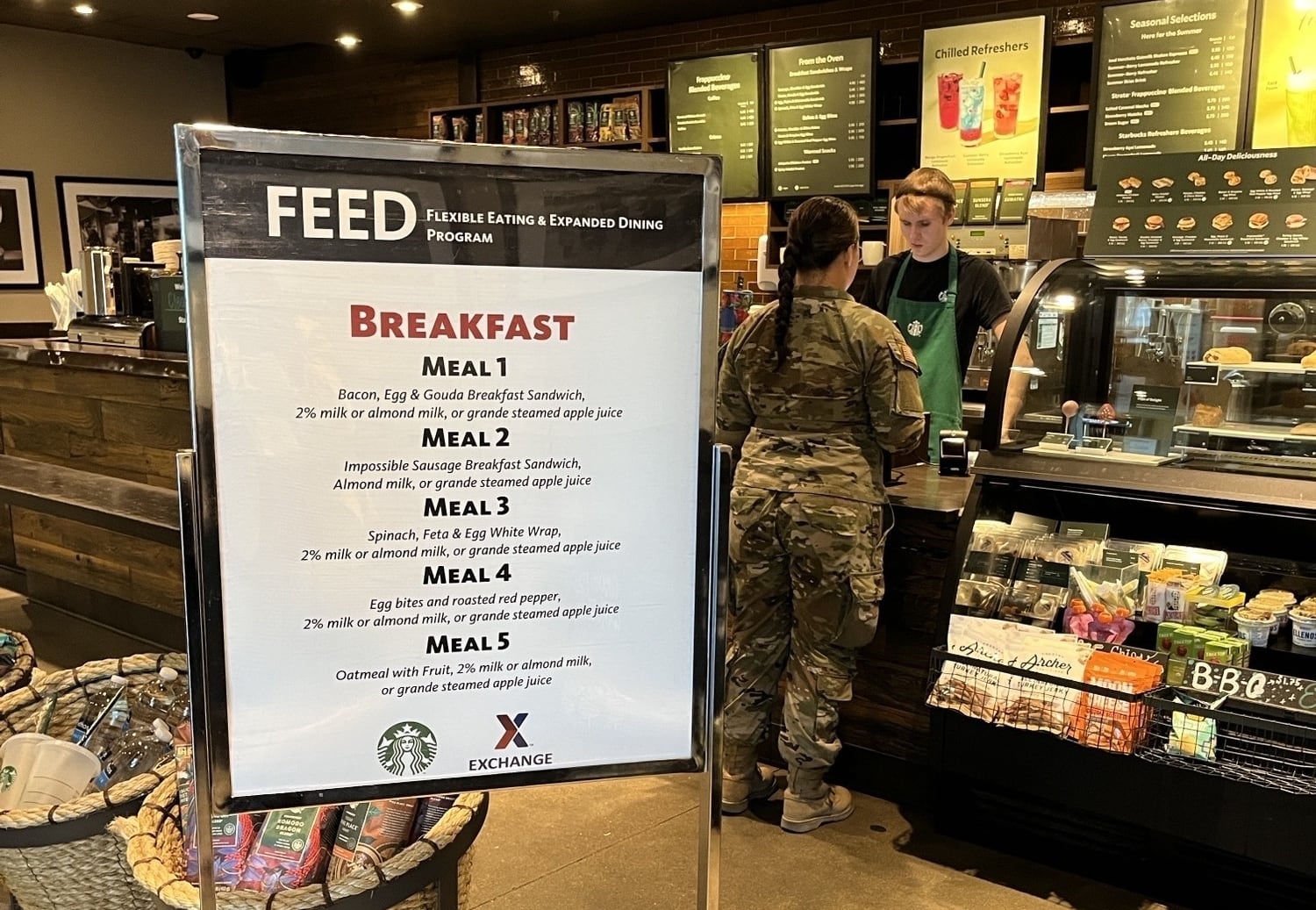After countless hours spent trying to get reimbursement for the damage or loss of more than 70 percent of his family’s belongings during an October 2020 move from Maryland to Fort Knox, Kentucky, Army Lt. Col. Troy Frey has finally reached a resolution.
“This was the worst permanent change of station move of my 21-year career,” he said. “This consumed our lives over 2½ years.”
While it’s not known how common these moving disasters are — with problems from start to finish — military families’ issues with household goods shipments have been persistent enough to convince U.S. Transportation Command to overhaul the way it handles military moves. This family’s horrible experience shows why change is needed, Frey said.
When he received his PCS orders in 2020, Frey was just finishing a year-long unaccompanied tour in South Korea. He returned to the United States in the midst of the pandemic, so some of the move dates were affected by various quarantines. A housing crunch also hampered their ability to find a suitable place to live, so their household goods were put into storage for about a month while they occupied a friend’s trailer.
The family finally moved into their new home in Kentucky and the movers arrived Nov. 17, 2020. That’s when the Freys discovered that their belongings had been damaged or destroyed — by water, mold and other means, with much of their wooden furniture broken into pieces. Not long afterward, due to the water and mold damage, everything was removed for inspection and remediation. Their house, too, required remediation because of the mold that had been brought in on their belongings, so the family moved to a hotel where they spent the next 126 days. To make matters even worse, the movers also damaged floors, walls and doors of their house, Frey alleged.
When the movers brought back the supposedly remediated household goods on Jan. 15, 2021, their belongings were in even worse condition. Again, they were sent back for inspection and remediation.
The Freys soon filed a claim for loss of belongings valued at $152,167. Little did they know that their misery was only beginning.
To illustrate the epic, 2½-year battle for restitution that ensued, Frey shared a 69-page, single-spaced timeline of the events and details of phone calls, emails and correspondence with dozens of people.
Once he turned over the claim to the Army claims office, his claim was settled within a few months, and the Army paid him $100,000 due to the “extraordinary circumstances” of the move, the only time it has done so since it began tracking such extraordinary cases in July 2022. Information was not available from the other service branches about whether they’ve paid any household goods claims reaching the maximum when the claim is turned over to the military claims office for resolution.
“There are so many moving parts to the claims process,” Frey said. “In my opinion, it’s very complex and convoluted. I don’t want this to happen to other military families.”
He added that he is especially concerned about younger troops who might not feel empowered to push back and question decisions from moving companies.
‘Devastating’
The Freys didn’t receive their final shipment until May 15, 2021, after the second mold remediation. But even then, many of their belongings were damaged, Frey said.
They had already begun the painstaking task of filing a claim. More than 100 boxes were unaccounted for, and the packers at the front end hadn’t properly marked boxes or inventory sheets, he said.

Meanwhile, when the items were being inspected and/or remediated and repacked, the movers “mixed everything up,” Frey’s wife, Debbie, said. “That was the hardest part. … The only thing that was sort of kept together was the clothes. … We had kitchen items that were in with bathroom stuff, with books and DVDs all mixed together. Our stuff was just jumbled up in boxes.”
Frey’s shipment from his yearlong tour in South Korea, which had arrived in good condition, was also removed from the house for inspection and remediation if needed.
That shipment also disappeared.
“We had to provide estimates of things like how many T-shirts we owned, how many pairs of pants, how many glasses you had in your cupboard,” Debbie Frey said. “That’s not something you sit there and think about every day. … It makes it very hard to estimate what you have and don’t have.”
She described the whole situation as “devastating. … It was definitely the sense of loss that you have. It’s really hard to overcome that, to get past that.”
Of all the losses, she said, “the one that hurt the most was a christening gown.”
“It was handed down from my great-great-grandmother, who actually handmade the lace on it, handmade the christening gown. We had hand-carried it, but then it was removed from the house [when mold remediation was required], and then lost. Every person in our family had worn it. My son had worn it. Every kid in our family had worn it, and it got lost.”
An inspector’s words say it all
On Jan. 15, 2021, when the moving company brought remediated household goods back to the Frey’s house, an Army quality assurance inspector described the sight when the doors to the van were opened:
“It was apparent that the shipment had been handled haphazardly and there were several boxes open with contents spilling out, footprints on top of [household goods], a television loaded upside down in the box, all mattresses were uncovered completely, a sofa was tossed upside down on top of other items in the truck, dining room chairs were hanging off other boxes, shelves were uncovered and broken, Bar-B-Q grill had all wheels broken off it and rolling in the truck.
“Totes were loaded on their sides with contents spilling into the trailer and contents were in complete disarray. Once I asked the driver to open the back door, it was obvious there was water and mold damage to the entire shipment. Boxes were soaked through and some blankets in the back were saturated with water that was dripping down furniture and into boxes.”
As Frey later found out, their belongings were left in a truck that had a gap through which rainwater poured. The shipment was taken to a climate-controlled warehouse for more inspection and remediation.

All told, after intense effort and endless aggravation, he received $150,359.
For various reasons, the moving company eventually reimbursed him $31,959, or 21% of his claim, although a company’s maximum liability for a service member’s household goods loss is $75,000.
After unsuccessfully battling to get more, Frey transferred his claim to the Army in October 2022. And in March of this year, almost two years after final delivery, he received $100,000 from Army Claims Service.
Because the Army classified his losses as arising from “extraordinary circumstances,” it was able to reimburse him the maximum allowable by law, rather than the $40,000 maximum for a typical move. Frey’s final step was submitting a claim to his insurance company, and on May 10 he received another $18,400 from USAA.
Following the rules?
TRANSCOM booked Ackley Enterprises to handle the Freys’ move, one of about 800 command-approved transportation service providers. As the primary moving company, Ackley was accountable for the Freys’ move.
Ackley has an agreement with Total Military Management, a move management company, to handle services such as the claims process. Ackley hires local moving companies to do the actual work.
On April 5, 2022, an Army official told Total Military Management: “This claim has taken far too long. Unless [your transportation service provider] makes a good faith settlement offer very soon, I will have to report this to TRANSCOM.”
Frey said he was pleased, throughout the ordeal, with the response from Army civilians, who helped him deal with claims questions and communicate with the companies involved. Leadership was supportive by giving him a compassionate reassignment, sending him to a unit with a lesser operational tempo so he could devote the time needed to deal with the fallout of the move.
Meanwhile, TRANSCOM officials had issued a letter of warning to Ackley Enterprises Inc. in January 2021 as a result of the Freys’ experience, according to TRANSCOM spokesman Andre Kok.
In response to Military Times’ questions, Tom Ackley, owner of Ackley Moving Services, also known as Ackley Enterprises, said, “We have reviewed this move with TMM and the Army [military claims office], and while we wish there had been no damage issues on this move, we are confident the claims settlement process was properly handled in accordance with [Defense Personal Property Program] business rules.”
Asked about the Freys’ experience with the claims process, Matt Connell, CEO and cofounder of Total Military Management, said, “TMM settles all claims in accordance to the [Defense Personal Property Program] business rules. … In this specific case TMM processed the claim under the direct oversight of the Army military claims office, and we have not been provided any information pertaining to the settlement that the Army MCO has made.”
Hope for the future?
The new TRANSCOM contract consolidates management of the moving process — including warehouse services — under one company, HomeSafe Alliance. The command will continue to provide oversight, but the contractor will be fully responsible, bringing accountability to the program, officials have said.
Most service members won’t move under this new set-up until the peak season of 2024, but HomeSafe is preparing to gradually phase in some domestic moves starting later this year. International moves under the contract are scheduled to begin later.
In addition to providing better moves for service members, the new contract aims to improve the claims process, according to TRANSCOM spokesman Kok.
HomeSafe Alliance CEO Al Thompson said troops will find that submitting a claim and getting a settlement will be streamlined and faster. A new HomeSafe Connect app will give service members an opportunity to start with a much more accurate and clear inventory description, including the condition of the property, before it leaves a residence. Photos can be uploaded in the app, too. Service members and spouses can quickly review the mover’s information to confirm the condition of the property, he said.
If damage occurs, they can file a claim on the app.
“Part of our contractual responsibility is to rapidly process the claim,” Thompson said.
If they are unsatisfied, service members will still have the ability to submit their claim to their military claims office.
“I hope it protects the service member,” Frey said. “We serve the government. We have to make a PCS move every couple of years. It’s not a choice. We’re told to move.”
TRANSCOM also changed some rules for moving companies regarding mold claims, Kok said. They took effect May 15. Kok said Frey contacted TRANSCOM at the end of 2022 to share his experience and provide suggestions for improving the mold claims process.
“Coincidentally, the Defense Personal Property Management Office had already begun making several proposed adjustments to our business rules for moving companies regarding mold claims,” he noted.
RELATED

Among those changes:
- When containers show signs of contamination, such as water saturation or mold growth, the company must contact the responsible military transportation office within two government days of discovery.
- The company will continue shipping goods to a location determined by the company and the transportation office, but won’t deliver to a residence before the shipment has been inspected.
- When mold is discovered, the company will notify the service member, the military claims office and the inspecting transportation office and update the transportation office with findings within 48 hours.
- Before undertaking remediation work, the company must contact and schedule the services of a qualified mold remediation firm within three government business days from the government official’s direction, to get an itemized written estimate.

Things Frey wishes he had known
Frey admits he was perhaps his own worst enemy during part of the process.
“I was told you get full replacement value from the moving company, and once you transfer it to the Army, you’re only going to get depreciated value,” he said. “I wanted to get full replacement value and maximum liability.”
He didn’t realize the Army could pay up to $100,000 if the claim was related to “extraordinary circumstances.” So, he didn’t officially turn the claim over to the Army as soon as he could have, while going back and forth for months with Total Military Management.
“Once I got it to the Army, everything was fine,” he said.
There were also questions about the timeliness of the claims and whether the clock was tied to the November 2020 attempted delivery or when their last few items were delivered in May 2021. While Frey was told in an email that the claims clock starts with the final delivery, the law says the claims clock starts with the date of initial delivery.
This is unfair, he argues, because for six months he couldn’t see his belongings to know what was damaged or missing.
“For all types of loss and damage claims, if a customer has been working with their [moving company] for at least 30 days and is not satisfied with the offer and/or interaction, then they are welcome and encouraged to transfer to the [military claims office] for help with resolving the claim,” Kok said.
The determination about extraordinary circumstances is always made by the military claims office community, he said.
Frey submitted his claim to the Army claims office in October 2022, and by late February 2023 Army officials had determined he would receive the $100,000 maximum. In most, but not all, cases, the claims office will go back to the moving company for reimbursement, Kok said.
In Frey’s case, the Army was unable to seek reimbursement, said spokeswoman Lt. Col. Lindsey Elder.
The Army claims office didn’t start tracking catastrophic losses until July 2022, Elder said. Since then, the Army has considered 20 claims for losses deemed catastrophic, but Frey’s was unique in that it involved mold, she said.
“This is the only time that the Army’s Center for Personnel Claims Support has paid the $100,000 maximum for a claim,” she said.
The Freys also found out too late that — because their son, Connor, was then 16 — they could have gotten two hotel rooms paid for by the moving company when they were displaced because of the mold. It was difficult for everyone to be in one room, with no kitchen, for 126 days, Frey said.
Frey has put in his retirement papers, in anticipation of retiring in May 2024. “If this all hadn’t happened, I might have stayed in. I don’t know,” Frey said.
“But I’m definitely ready for retirement.”
Karen has covered military families, quality of life and consumer issues for Military Times for more than 30 years, and is co-author of a chapter on media coverage of military families in the book "A Battle Plan for Supporting Military Families." She previously worked for newspapers in Guam, Norfolk, Jacksonville, Fla., and Athens, Ga.




